口 Feature Story
-
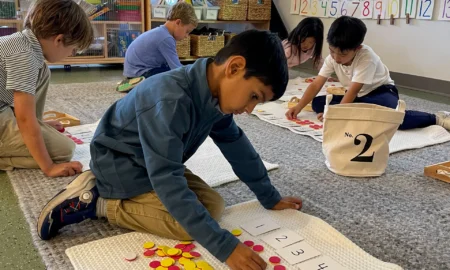
 656
656The building blocks of math that students need to excel — but aren’t always getting
Understanding how numbers work is as important to math as phonics is to reading.
-

 535
535Fragile beginnings: Children face unique vulnerabilities to environmental hazards at every stage of life
This brief discusses the unique vulnerabilities of children to environmental hazards.
-
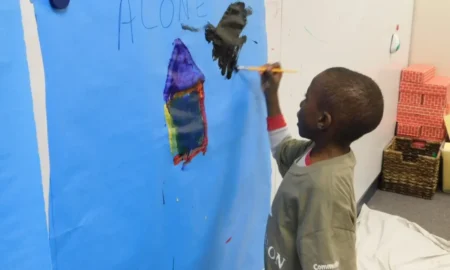
 1.1K
1.1K‘Bereavement Deserts’: Amid a rise in parental deaths, grief in children is often overlooked
‘My son needed something I couldn’t give.’ Surviving parents seek grief support for kids.
-

 785
785Education groups push back against feared cuts to school-based Medicaid
For decades Medicaid has paid for services in schools for low-income students.
-

 629
629Some incarcerated youths will get health care after release under new law
The goal is to help prevent them from developing a health crisis or reoffending.
-
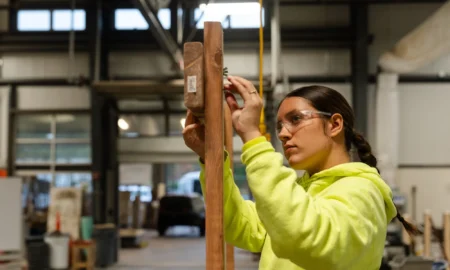
 678
678‘Golden ticket to job security’: Trade union partnerships hold promise for high school students
For trade unions and CTE programs, new collaboration may be key to survival.
-

 639
639How Medicaid helps mothers, caregivers and children
Medicaid covers nearly half of all births and health of all children in America.
-

 597
597Active reading: A tutoring program uses movement, balls, sandboxes and more to bridge the literacy gap
A teaching method that makes reading fun gives hope to struggling students and families.
-

 1.1K
1.1KTeachers learning what works − and what doesn’t − will get a lot harder without the DOE’s Institute of Education Sciences
The IES advances education by supporting rigorous research and sharing data on student progress.
-

 697
697A developmental disability diagnosis can hit hard – but it isn’t a knockout
An evaluation for a developmental disability can feel like a double-edged sword.
-

 936
936Stunned education researchers say cuts go beyond DEI, hitting math, literacy
Following Trump research budget purge, school analysts face new world.
-

 679
6791 in 5 child care workers is an immigrant. Trump’s deportations and raids have many terrified
Many staff and children aren’t showing up as federal crackdown on immigration ramps up.
-
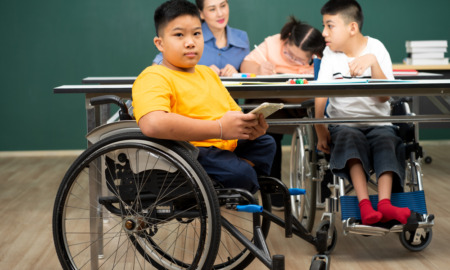
 1.0K
1.0KTop scholar says evidence for special education inclusion is ‘fundamentally flawed’
Research doesn't support academic advantages of placing children with disabilities in general education classrooms.
-

 827
827Teen girls are facing an increased risk of suicide − and stress related to sexual identity might be contributing to it
LGBQ teen girls reported much higher rates of thinking about, planning and attempting suicide.
-

 845
845The Department of Education told employees to end support for transgender students
This ends programs, contracts and policies failing "to affirm the reality of biological sex.”
-

 646
646Severe irritability in children and teens: A new understanding
Kids with disruptive mood dysregulation disorder have explosive outbursts well past toddler age. Why?
-

 503
503College student access to sexual and reproductive health care
A federal report discusses the access college students have to sexual/reproductive healthcare on campus.
-
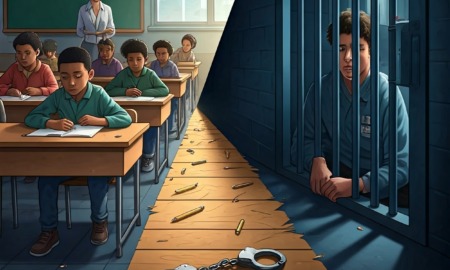
 2.6K
2.6KQ&A: Black kids overdiagnosed with ‘Oppositional Defiant Disorder’
The ‘bad kid’ diagnosis ‘greases the school-to-prison pipeline.’ This doctor offers anti-racist solutions.
-

 967
967Hundreds of thousands of students are entitled to training and help finding jobs. They don’t get it
The best program to help students with disabilities get jobs is almost a secret.
-

 633
633HHS should help states address barriers to using federal funds for programs serving youth transitioning to adulthood
A report discusses how states use federal funds to support youth transitioning from foster care to adulthood.



























